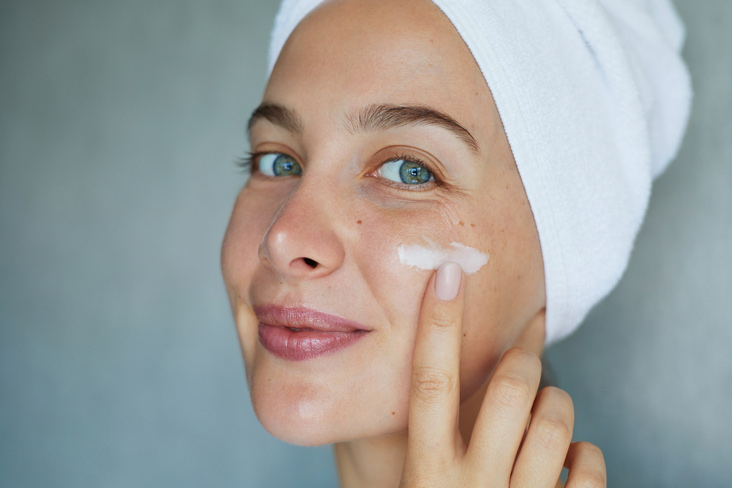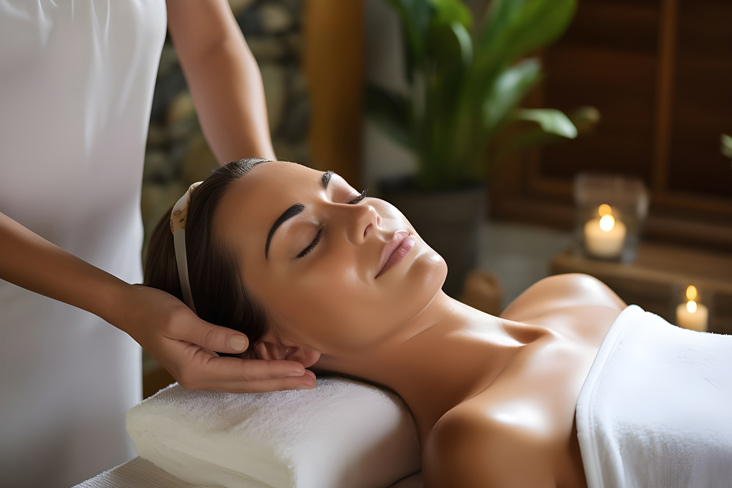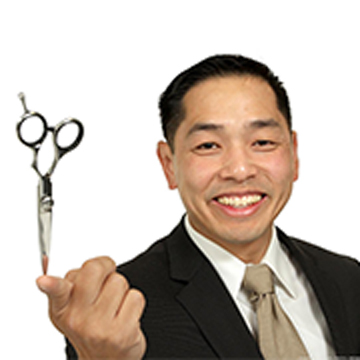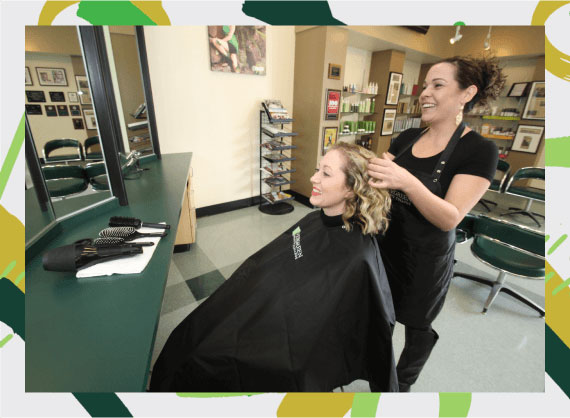What Type of Training Do You Need to Work in a Spa as a Beauty Professional?

Beauty Agent Studio- stock.adobe.com
The concept of spa treatments was introduced in ancient Greece, primarily in Crete and Santorini. Water and body treatments were a method of cleansing and healing. The contemporary spa industry spans numerous spas ranging from hot springs-thermal spas, destination spas, resort and hotel spas and mineral spas.
Many of these wellness places aim to rejuvenate the body and mind and help spa-goers look and feel like their best selves. Wellness and self-care have become ingrained and almost synonymous with the beauty industry in a sense. News outlets and fashion magazines, like Elle, boast the best spa operations across the country everyone should experience.
Who are some of the beauty and wellness professionals supporting the spa industry?
The beauticians and hair stylists
As a spa hairstylist, you’re employed to give customers quality service. Most luxury and wellness spas roll out the red carpet for clients. They’re pampered and catered to beyond the typical service they may receive at a salon.
The massage therapists
Massage therapists are essential to the makeup of a spa. Massage therapy, body wraps, deep tissue massage, and other spa services are an integral part of the spa environment.
The manicurist and pedicurist
Nail technicians working at the spa nail salon are masters of their craft. They have every French manicure down pat and are experienced at giving skin-softening hand massages that alleviate feelings of stress.
The esthetician
Estheticians at spas offer excellent customer service, skin treatments and facials that replenish the moisture back into the complexion and give customers luminous, clear skin.
The buyer
Mostly the buyer of products lives behind the scenes, but they are responsible for curating a line of products used at spas, including massage therapy lotions, body scrubs, hair and skin products, plus clothes for the spa retail store.

woman and esthetician
What type of training do you need to work at a spa?
The spa industry has plenty of job opportunities for people catering to spa customers. Having customer service experience is an advantage, especially if you plan to work in customer service, hospitality management, or as a spa manager. Beauty professionals offering services to clients at spas or salons must be certified.
Let’s say you want to work as a nail technician, hair stylist, or esthetician, you will need to study at a cosmetology program that the NACCAS supports. The NACCAS goals are to enhance the post-secondary education and training experience. When salons and spas see that applicants have studied at schools backed by NACCAS, the curriculum is likely extensive and meets the minimum requirements.
What types of programs does Evergreen Beauty College offer?
At Evergreen Beauty College, we require incoming students to have a school diploma or GED and be at least 17 years of age to apply. Students wanting to be beauticians, makeup artists, or hairstylists are encouraged to enroll in our cosmetology program.
For those interested in specializing as estheticians, we offer an esthetics program that focuses on all things skin related. Many aspiring makeup artists opt to study with our esthetics program.
In Esthetics, you will learn make-up fundamentals, skin analysis, facial massages, and how to administer the various facials.
Evergreen also offers a nail technician program, a barbering program, and an instructor training program.
About Evergreen Beauty College
Students of all artistic backgrounds are welcomed at Evergreen. Beyond learning foundational and advanced skills in your field of study, you will learn the basics of financial management, the behind-the-scenes business operations, how to communicate with clients and give consultations.
Our staff and instructors offer individualized training to our students. Virtually all students are likely to meet the owners on campus. Our goal is to make students feel they belong and can succeed with dedication and hard work. If you’re interested in attending any of our seven campuses, schedule a tour online today.
If you live near Olympia, Washington, there’s an Evergreen Beauty College near you. For those residing in Kirkland, our North Seattle campus is approximately a 30-minute drive.
Our campuses include:
- Bellingham
- Mount Vernon
- Everett
- North Seattle-Shoreline
- Renton
- Yakima
- Seattle
FAQ: What type of training do I need to work at a Spa?
What education and training have you undergone to be a hairdresser or esthetician?
In order to work in a salon or spa, students must be licensed. You will need a GED or high school diploma before enrolling at a certified cosmetology program backed by the NACCAS to achieve your license.
The minimum required school hours for each profession in Washington State are as follows:
- Cosmetologist: 1,600 hours
- Barber: 1,000 hours
- Manicurist: 600 hours
- Esthetician: 750 hours
- Master Esthetician: 450 hours
- Combined Master Esthetician: 1,200 hours
- Hair Designer: 1,400 hours
Once you complete your program, you will need to enroll for your state exam to become licensed.
How much do estheticians and hair stylists earn in Washington State?
The base median salary for a hairstylist in Washington State is $28.83 hourly, according to Indeed in October 2023. Estheticians’ base median salary in Washington State is $25.12 per hour, and they can earn as much as $55.00 hourly, plus tips, as reported by Indeed in October 2023.
Most clients tip estheticians and hairstylists 20% in both a salon and spa setting.
What are estheticians allowed to do in Washington State?
Licensed estheticians are allowed to use antiseptics, tonics, essential oils, exfoliants, superficial or light peels. Laser treatments can only be performed by a physician.
An esthetician can administer a skin analysis to pinpoint skin types and recommend specific facial and skincare treatments to target problem areas like melasma, acne, pigmentation, dry and dull skin, oily skin, premature aging caused by products, sun damage, or environmental factors.
While estheticians are not medical health providers, they are licensed to perform skin treatments to enhance the skin’s complexion. In a spa setting, estheticians provide waxing, facials, body treatments, makeup applications, and instructions on a recommended skincare regimen based on the client’s skin type and skin issues they would like to resolve. Patients should schedule routine visits with their esthetician for noticeable results.




